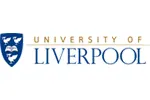We're moving! This site will be relocating to goingto.university in 2026. Please update your bookmarks to the new address.


the United Kingdom
University of Liverpool| The award | How you will study | Study duration | Course start | Domestic course fees | International course fees |
|---|---|---|---|---|---|
| MSc(Eng) | Full-time | 1 year | September | GBP 5135 per year | GBP 15251 per year |
This course will provide students with an in-depth knowledge of the electrical power generation, distribution, networks and trading. The operating principles, monitoring, optimisation and control of modern power systems are discussed in details. The environmental challenges, renewable energy generation, and research and management skills are also addressed in this one-year programme. Finally, students will be introduced to the principles underlying robust trading systems, an important element of fair and transparent electricity markets. The programme has been developed for graduates with electrical/electronic or related background to meet the increasing demand from the energy and power industry.
The world demand for energy (in particular electrical power) will increase over the next decade and beyond. There are many problems to meet this challenge without causing serious environmental damage to our planet. Electrical and Electronic Engineers will need to provide solutions to get the balance right. There are tremendous opportunities for us to make a significant impact that will shape the future for everyone, and this course has been developed to meet the demand from industry.
The programme consists of a taught component and a major research based project. The taught component is organised in two 12-week semesters with examinations at the end of each semester.
The taught part of the programme is assessed in January and May and represents 105 credits from a total of 180. The remaining 75 credits are allocated to the project. Project related work accounts for 75 credits; 15 credits are allocated to course work aiming to improve report writing skills and 60 credits are allocated to project specific work undertaken from June onwards.
ProjectsProject work contributes 60 credits, which will be based on a topic of industrial or scientific relevance, and will be carried out in laboratories in the University or at an approved placement in industry. The project is examined by dissertation, and award of the MSc (Eng) degree will require evidence of in-depth understanding, mastery of research techniques, ability to analyse assembled data, and assessment of outcomes.
Below are some suggested courses at other providers that you may also be interested in:
International Business Law LLM, LLM, LLM
Centre for Commercial Law Studies, Queen Mary University of London
Find out moreBachelor program “Operational Manager in International Hospitality” Bachelor Degree
Vatel Bordeaux
Find out moreIf you do not meet the entry requirements for this course then consider one of these courses from another institution:
There are 424 other courses listed from University of Liverpool. A selection of these are displayed below:
Advanced Chemical Sciences (Nanoscale with Interfacial Science) MRes, MSc
University of Liverpool
Find out moreAdvanced Chemical Sciences (Nanoscale with Materials Chemistry) MRes, MSc
University of Liverpool
Find out moreAdvanced Chemical Sciences (Organic and Biomolecular Chemistry) MRes, MSc
University of Liverpool
Find out moreAdvanced Chemical Sciences (Organic Chemistry with Catalysis) MRes, MSc
University of Liverpool
Find out moreJoin the StudyLink email list and never miss a chance to turn your study abroad dreams into reality!
